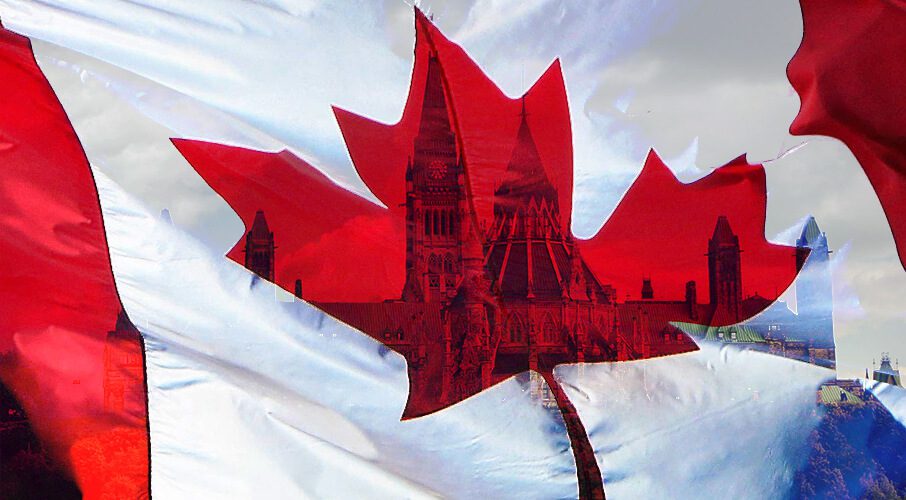By Ken Coates, August 17, 2022
The rapid expansion of government in Canada over the past decade produced an unintended experiment in the role of the state in our lives. The pandemic in particular liberated governments to expand programming, spending and interventions in a manner unprecedented outside of wartime.
As Canadians get a front-row look at life in a society defined by bureaucracy and “peak government”, many don’t like it. But the governing Liberal-NDP non-coalition is talking about even more national programs, including childcare, pharmacare, and dental care. While some people favour more “free stuff” from government, the reality is governments need to get the financial and administrative basics right before unwrapping shiny new programs.
Promoting expensive initiatives while health care is in crisis, the housing market is in disarray, and climate change initiatives stifle the economy without reducing emissions is more upsetting than encouraging. Spending more when our country faces massively increased government debt and rising interest rates seems increasingly reckless.
Canada’s welfare state expanded slowly after the Second World War, except for Indigenous peoples, who faced a massive increase in state intervention. Government policies induced welfare dependency among First Nations and Inuit, disrupting Indigenous communities and undermining their autonomy. For other Canadians, the advance of the state was much slower and government officials inflicted much less control on peoples’ daily lives. The country slowly adapted to the slow expanding government programs.
Today that has changed. From vaccine mandates and the ArriveCan app to CERB payments, proposed oversight of Internet content, state-funded journalists, and myriad other policies and programs, the state is ever more present. Interventions like vaccine mandates were dictated by a health care emergency and supported by most Canadians. Others, including mandatory mask requirements in airports and airplanes, mark the country as a regulatory outsider.
Canada’s 2021 federal election campaign epitomized the pursuit of peak government. All three major parties competed to offer more programs, more money, more policies, more debt. This unseemly bribery attempt was matched only by the electorate’s willingness to accept government munificence as their due. After Erin O’Toole helped host the grand government buffet, producing an electoral result that mirrored the campaign’s reckless spending promises, he was removed as Conservative leader.
There have certainly been times – think of the 1970s and ’80s Liberal governments of Prime Minister Pierre Trudeau – when government spending became substantially disengaged from government revenues. Generally, however, financially prudent Canadians have supported administrations like those of Brian Mulroney, Jean Chretien, Paul Martin and Stephen Harper, leaders who approached government spending more cautiously or even sought a balance between revenue and expenditures.
Like many countries, Canada takes inspiration from the Scandinavian welfare model. Those who desire a comprehensive Norwegian, Swedish or Danish nanny state conveniently overlook those countries’ high levels of taxation and long-term careful fiscal management. Norway, justifiably lauded for its combination of long-term saving and comprehensive social programming, still benefits from decisions in the 1960s not to spend its rapidly increasing North Sea oil revenues.
In Canada we instead get a misplaced belief that deficit spending can continue unchecked, with a fiscally uninformed “tax the rich” mantra passing for astute political policy. But instead of being on a path to become the new Norway we seem bent on being New Zealand of the 1980s, when out-of-control spending drove it to the verge of bankruptcy and political calamity.
Canada is stretching the limits of peak government, expanding both programming and spending close to the edge of public tolerance and national finances. The government apparently believes Canada can keep spending whatever money we can borrow, following the logic of unfettered credit card financing or extravagant lifestyles.
It is important to determine the line where citizens are both well served and well protected by their government. Many Canadians appreciate government largesse, as the enthusiastic embrace of CERB demonstrated. New programs, especially childcare and pharmacare, have vocal constituencies, but the electorate must accept the need to connect expanded programming to enhanced economic activity and reliable revenues. A nation can only have the policies and programs that it actually needs and can afford. The lesson learned from Norway is that savings topped deficit spending, producing a level of national confidence and pride that is worth emulating.
The Freedom Convoy, reviled by most but lauded by many, reacted to what they saw as government over-reach. Anti-vaxxers reject government vaccine mandates. Other Canadians worry about deficit financing, expanded federal programs in childcare and pharmaceuticals, federal funding for journalism and other examples of a rapidly morphing state. The reality of peak government sits uneasily with many Canadians.
The condition of peak government is not inherently partisan; the Conservative Party has favoured new spending, albeit on a lesser level than the expansionary NDP and free-spending Liberals. The combination of rising interest rates and the frightening size of the federal deficit is forcing the government to show some restraint, but a temporary spending slowdown (if it comes) is not the same as right-sizing government. Canada needs strategies that build and maintain a strong enough economy to match the politicians’ appetites and provide Canadians with the services needed for 21st-century success.
Peak government, as Norway as discovered, can be a remarkable and stabilizing achievement. Many countries have discovered that government over-reach, both fiscal and programmatic, can send a nation into a deep spiral. Canada’s unbalanced approach, combined with the license to spend granted to government by a terrible pandemic, is far removed from a Norwegian trajectory.
Canadians must rediscover the need to link government spending with revenues. To do otherwise, and accept the buck-passing addiction of deficit financing that impoverishes future generations, is to abandon our own responsibility for balancing our appetite for government services with our willingness to pay taxes and, even more importantly, produce and sustain economic growth.
Ken Coates is a Distinguished Fellow and Director of the Indigenous Affairs Program at the Macdonald-Laurier Institute, and a Canada Research Chair at the University of Saskatchewan






